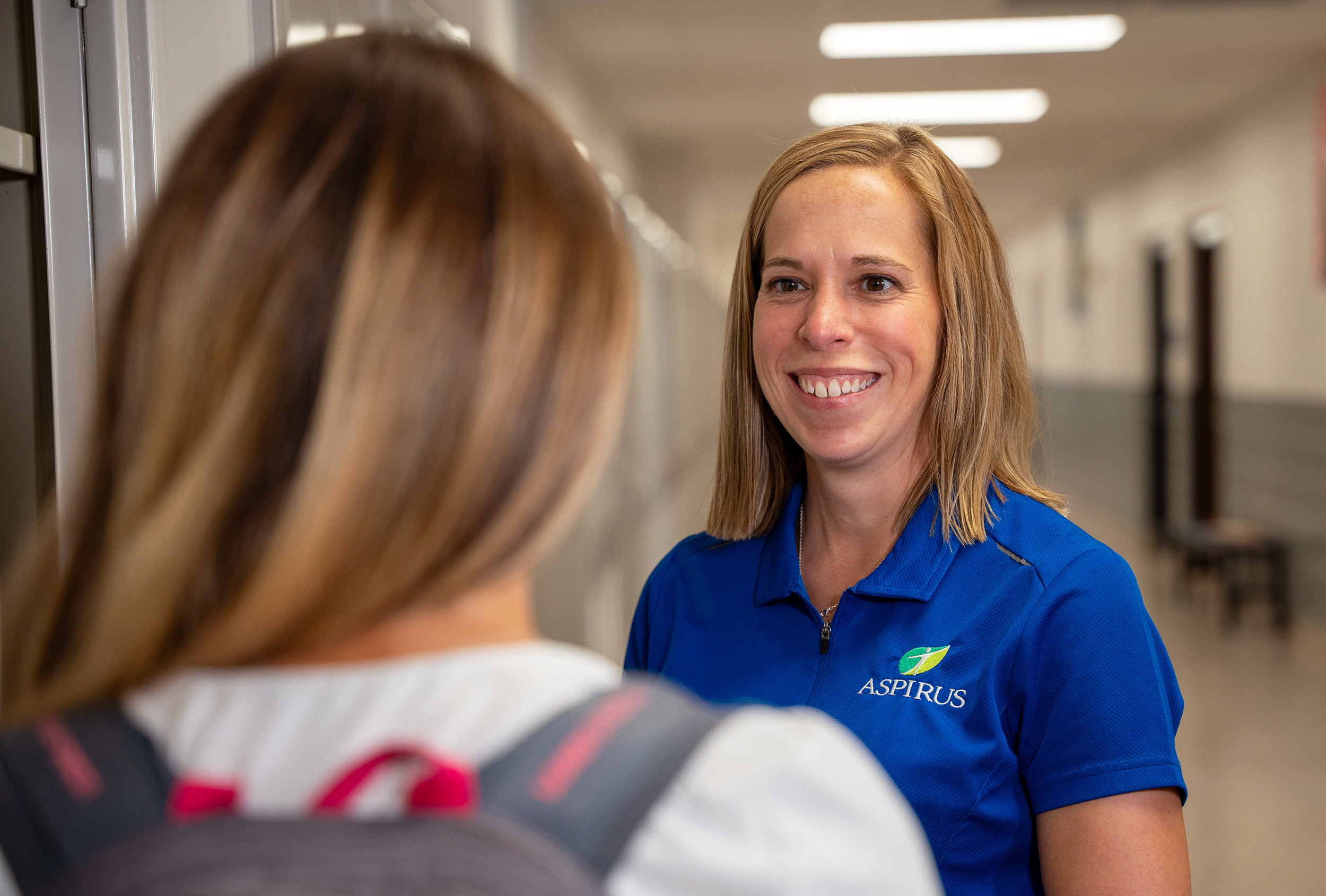Aspirus has your child’s back with these helpful backpack tips
8/6/2024

Megan Stankowski, Aspirus Physical Therapist and Athletic Trainer
Backpacks are a
practical and useful way to get textbooks and supplies to and from school. When
used properly, they should ease your child’s load, not make it worse.
“Improper backpack
usage among children can lead to neck pain, headaches, back pain and hip pain,”
says Megan Stankowski, PT, DPT, LAT, Physical Therapist, Athletic Trainer with
Aspirus Health. “Preventing these injuries may require parents to check in, observe
and gently remind their kids to make some adjustments to how they use their
backpacks.”
The American Academy
of Pediatrics and the Pediatric Orthopedic Society of North America offers some
tips for parents to help children wear their backpacks safely and correctly:
Choose the right
backpack. Your child’s backpack should have two broad, padded shoulder straps,
a padded back, a waist or chest strap, and compartments. These features help
distribute the weight of the contents more evenly throughout the body.
Educate your child
about proper backpack wear. Keep straps on both shoulders and use the
waist strap. Adjust straps to fit snugly.
Pack safely. Help
your child understand how to distribute the weight properly. Put the
heaviest items low and near the center of the back. Make sure the bottom of the
backpack rests in the curve of the lower back.
Check the weight.
Make sure your child is not carrying more than 15 percent of his or her body
weight in their backpack. If you notice them leaning forward to support the
backpack’s weight, then it’s too heavy.
Lighten the load.
Encourage your child to clean the backpack weekly and take out unneeded items,
store items in a locker at school when possible, and take only what’s needed to
school. Carrying heavier items in their arms will also alleviate some of that
extra weight.
Stankowski says kids
aren’t likely to relate any pain they’re experiencing to their backpack, so
it’s important to check in with them.
“Parents can catch
signs or symptoms of injury by simply asking their child how they like their
backpack or how it feels,” says Stankowski. She says this may prompt your child
to share any discomfort they may have. “Also observe them. Are they leaning to
the side or leaning forward? The child is not going to catch that as often as
the parent, and correcting these habits can prevent injuries.”
If adjusting how
your child is wearing their backpack doesn’t eliminate pain, seek help from
their primary care provider or physical therapist. To find an Aspirus provider,
visit www.aspirus.org/find-a-provider.

Back to all Posts